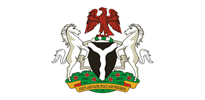The Gender and Equal Opportunity Bill, 2011: A Call to Action
The Nigerian Gender and Equal opportunity Bill, 2011 is a legislation that seeks to eliminate all forms of discrimination on the basis of sex and gender in private and public spaces. It affirms women’s rights to equal opportunities and to realize their full potential and provide protection for their bodily integrity and human dignity. The bill sought to give effect to Chapters II and IV of the 1999 Constitution of the Federal Republic of Nigeria;
The International Covenants on Human Rights which affirms the principle of non -discrimination and proclaim that all human beings are born free and equal in dignity and rights, and that everyone is entitled to all the rights set out without distinction of any kind including distinction based on sex .The bill domesticates certain aspects of the Convention on the Elimination of all Forms of Discrimination against Women; the Protocol to the African Charter on Human and Peoples’ Rights on the Rights of Women in Africa and the National Gender Policy.
Despite being a direct response to the concerns on the delays in the domestication of gender focused international treaties/conventions mentioned above, the bill for the third time, did not see the light of day from the National assembly (Senate) after second reading. Although there has been lots of criticism on the reason for dismissing the bill (Cultural and religious belief) and this criticism has raised lots of questions such as whether the content of the bill is inconsistent with the provisions of the constitution and if the form and structure of the bill is inappropriate? These questions are answered in affirmative as the bill is not inconsistent with the provisions of the Constitution rather it reaffirmed and elaborated the provisions of section 42 of the Constitution of Federal Republic of Nigeria, 1999 and some international treaties like Universal declaration of Human Rights 1948 and other international treaties mentioned earlier. Where there exists a clash between the content of the bill and any other Law in force, it is the duty of the law makers to strike out those provisions on ground of repetition and not to dismiss the entire bill which reaffirms gender equality and the constitutional right against discrimination. With respect to the second leg of the question which is the structure of the bill, there is no evidence of any defect in the structure which consequently led to a public outcry when the bill was thrown out by the senate. The dismissal of the bill is a proof of the support of gender inequality by our representatives in the senate and therefore undermines the contributions of Nigerian women towards national development.
This article is a call to action by necessary stakeholders like Ministry of Women Affairs and Social Development, National Human Rights Commission, Human Rights NGOs, Women’s Rights Advancement and Protection Alternative (WRAPA) and Civil Society organizations (CSO’s), to ensure that the bill is re-presented and passed into law. Finally , this article recommends that the bill be made part of the mandate of Federal Ministry of Women Affairs and Social Development.
REFERENCES
Chapter II and Chapter IV (Sections 17, 18 and 42) of the Constitution of Federal Republic of Nigeria 1999, as amended
Facts about Gender and Equal Opportunity Bill, 2011, Federal Ministry of Women Affairs and Social Development, see http://www.womenaffairs.gov.
Nigerian Anger as Gender and Equal opportunity Bill Fails, http://www.bbc.co.uk/news/
What does the Nigerian Senate have against Women and equal Rights? http://venturesafrica.com/
Gender Equality, This day live, http://www.thisdaylive.com/
A Vote for Gender Equality Bill, Punch Newspapers, http://www.punchng.com/a-vote-
This article was contributed by Izuoma Egeruoh-Adindu, Research Fellow Nigerian Institute of Advanced Legal Studies, Abuja. Email. i.egeruoh@nials.edu.ng
Copyright © 2021 Nigerian Institute of Advanced Legal Studies. All rights reserved.

